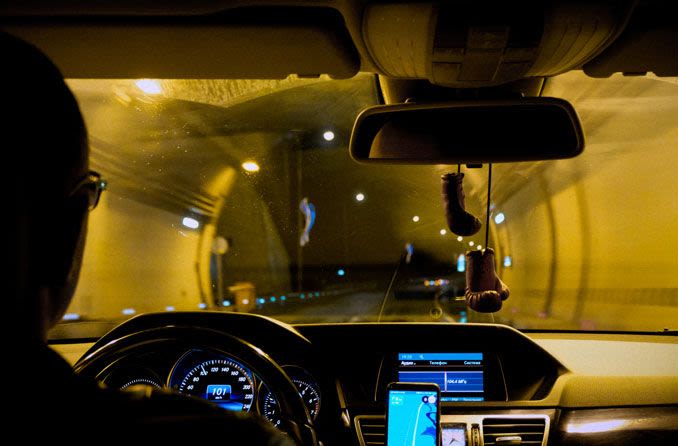Driving at night tips for older motorists: Driving glasses and lenses

One of the most challenging visual tasks is driving at night.
If you are an older driver and are concerned about your night driving vision, here are some suggestions to make sure your night vision is as clear as possible:
Have a comprehensive eye exam at least every two years. Update your glasses if there is even a minor change to your eyeglass prescription.
If you feel your vision has changed since your last eye exam, schedule another exam immediately.
Tell your eye doctor about any problems you experience on the road at night so that you can undergo specialized testing, such as evaluation of your visual field or contrast sensitivity.
If you have diabetes, get your eyes examined annually or as frequently as your eye doctor recommends. Follow your doctor's recommendations regarding diet, blood sugar control, insulin and self-care to reduce the risks of diabetic retinopathy, which can progress to severe vision loss without warning.
Ask your eye doctor to prescribe special eyeglasses that may help you see better on the road at night. Lenses with anti-reflective coating increase visibility and reduce glare.
If you are a candidate for cataract surgery, ask your surgeon about replacing your clouded natural lenses with an aspheric intraocular lens. These artificial lenses are engineered to provide better contrast sensitivity and crisper vision than would be possible with the implantation of traditional, spherical intraocular lenses.
Be extra cautious when approaching intersections. According to a study by the Insurance Institute for Highway Safety, 40 percent of fatal collisions involving older motorists occur at intersections. The most common reason for crashes was a failure to yield, especially when making a left turn.
Expert advice for driving safely
Here are additional night driving tips, prepared by the U.S. National Institute on Aging:
Drive only on streets you know, and avoid dark, unlighted roadways.
Limit your trips to places you can easily reach and that are close to home.
Avoid risky spots like ramps and left turns.
Plan for extra driving time if conditions are bad.
Don't drive if you are stressed or tired.
Stay focused on driving. Don’t check your phone in the car.
Keep your windows clean.
Keep your car in good repair, with well-aligned headlights and fresh windshield wipers.
Also, consider renewing your night driving skills with a driving class every few years. Some car insurance companies will discount your premiums for completing such a course.
If you are still uncomfortable driving at night after following the recommendations above, have a friend or family member (who has a valid driver’s license) drive.
Or, for short trips, leave the car at home and call Uber, Lyft or some other transportation service.
FIND A DOCTOR: An eye doctor can assess your vision and possibly help you see better at night. Find an eye doctor near you.
Page published on Friday, December 27, 2019






